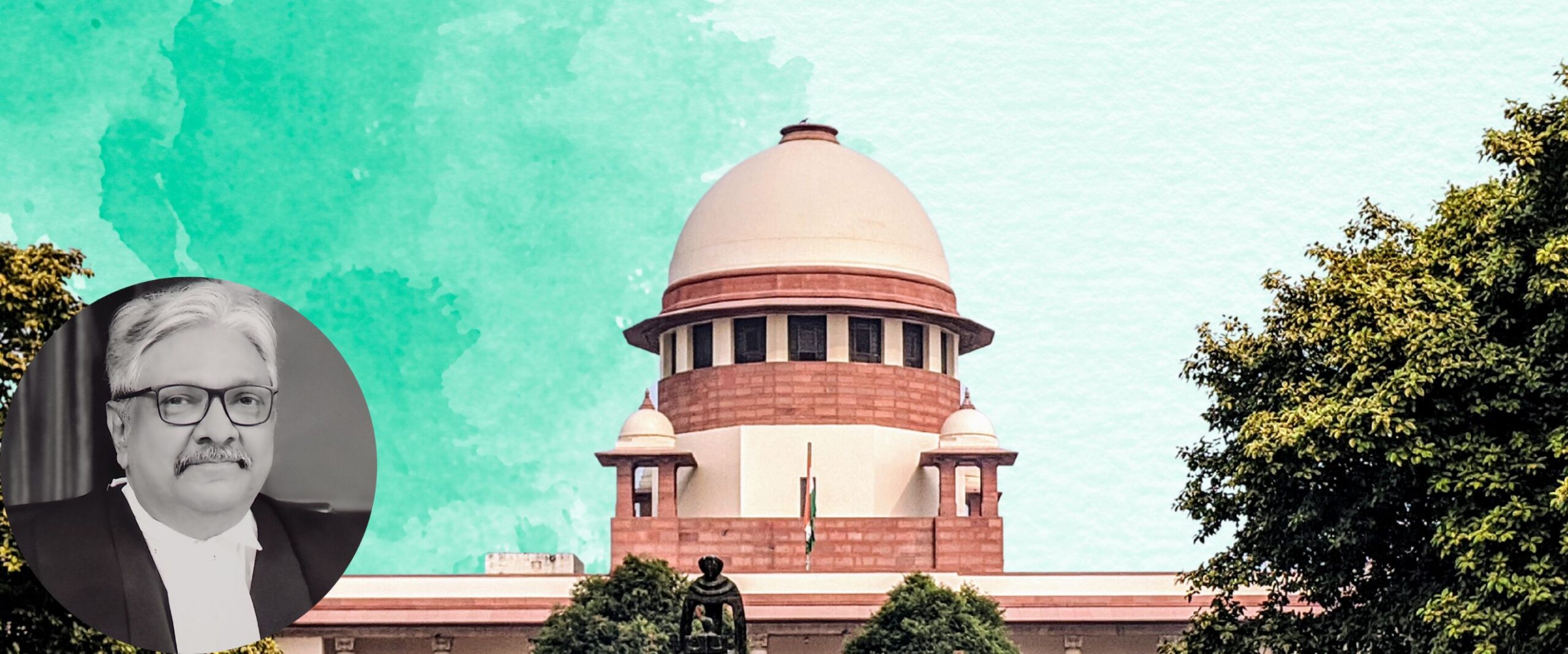Analysis
Justice K.M. Joseph’s Notable Judgements
Justice Joseph, among the most prolific judgement writers at the SC, wrote 4 Constitution Bench Judgements in 2023 alone.

Justice K.M. Joseph retires on June 16th, 2023, after a 4.8 year long tenure as a Judge of the Supreme Court. During this tenure, he authored 132 judgements and was a part of 404 benches*. He led six Constitution Bench cases. However, one of these cases—WhatsApp-Facebook Privacy—could not be heard before the end of his tenure.
When the Supreme Court Collegium recommended his name in January 2018, the Union government protested, claiming the overrepresentation of Kerala HC judges in the SC. Keen to have him on the Bench, the SC reiterated this recommendation, and Justice Joseph took oath on August 8th, 2018.
ECI Appointment Process Modified, Made More Independent
On March 2nd, a Constitution Bench Judgement written by Justice Joseph made modifications to the procedure for appointing members of the Election Commission of India (ECI). Justice Ajay Rastogi wrote the concurring opinion. The new process required a committee comprising the Prime Minister, the Leader of the Opposition and the Chief Justice of India to advise the President on ECI appointments.
The Judgement was in response to a PIL which argued that the current appointment process violates Article 324 and is unconstitutional. Article 324 states that the President can appoint the Chief Election Commissioner and other Election Commissioners subject to parliamentary laws. The PIL said that the current process relies only on the inputs of the Prime Minister, as an independent parliamentary law does not exist.
Justice Joseph wrote that the absence of a parliamentary law ‘creates a void or vacuum’ which calls for the ‘unavoidable and unpostponable filling up of the vacuum’. The Judgement held that the modified process for appointments will continue until the legislature makes a law in line with Article 324.
Euthanasia Guidelines Made More ‘Workable’
On January 24th, a Constitution Bench led by Justice Joseph accepted a joint proposal to modify the Supreme Court’s 2018 guidelines on euthanasia. In the Order, Justice Joseph acknowledged the petitioner’s concerns about the complexity of the existing guidelines for terminally ill patients. According to a chart prepared by the petitioners with the consultation of the Union Government, the Bench issued an order that made ‘Advance Directives’ more ‘workable’.
‘Advance Directives’ allow individuals to provide instructions when they fall terminally ill and are unable to communicate their wishes. The new guidelines no longer require countersigning by a judicial magistrate but allow attestation by a notary or gazetted officer. Individuals are responsible for sharing a copy of the directive with their guardians or close relatives, unlike the 2018 guidelines which put this responsibility on the magistrate. The guidelines also permit hospitals to establish a medical board to assess whether the instructions on refusal or withdrawal of treatment should be implemented.
Joseph Shine is not Applicable to Armed Forces Enactments
On January 31st, a Constitution Bench led by Justice Joseph clarified that the Judgement in Joseph Shine v Union of India (2018) does not apply to the laws of the Armed Forces. Joseph Shine struck down Section 497 of the Indian Penal Code,1860 which punished adultery. The Order was in a Miscellaneous Application filed by the Union Government seeking clarification on the applicability of Joseph Shine to Sections 45 and 69 of the Army Act, 1950. The provisions deal with ‘unbecoming conduct’ and civil offences’ of armed forces personnel.
Validity of Unstamped Arbitration Agreement
On April 25th, a Constitution Bench led by Justice Joseph by a 3:2 majority held that an unstamped arbitration agreement cannot be enforced until the stamp duty has been paid. The majority opinion was written by Justice Joseph on behalf of himself and Justice Aniruddha Bose. Justice C.T. Ravikumar wrote the concurring opinion. The majority referred to the Garware Wall Ropers Ltd. v Coastal Marine Construction (2019) and held that unstamped arbitration agreements are not enforceable until the stamp duty is paid.
Justices Ajay Rastogi and Hrishikesh Roy dissented and wrote that the majority’s decision could impede the purpose of arbitration—to simplify dispute resolution. They suggested that stamp duty issues should be left to the arbitrator’s discretion.
Critics argue that the majority’s decision may create challenges for practitioners and prolong arbitral proceedings.
*based on data available as of June 15th, 2023
